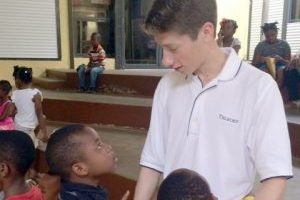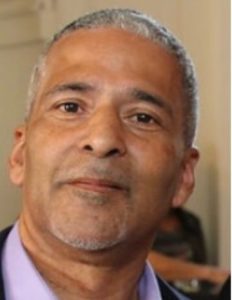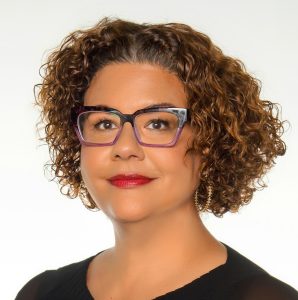Empathy sparked a fire in both Nicholas Midler and the late Alexandra Scott, two young entrepreneurs who each got a thriving nonprofit enterprise out of the starting blocks long before entering high school. And, though each eagerly started a daunting race, it was the timely handoffs and teamwork that saw their dreams of success reach fruition.
Midler founded an education program that is just gaining ground in the U.S. Virgin Islands. It uses research-based, child-led curriculum to provide low-income students a leg-up into kindergarten with an eye toward future academic success. His first-hand experience with a learning disability fueled his desire to help others with their academic struggles. He’s on pace to raise $45,000 this year for his Family Connection Kindercamp, a jump from the $31,000 budget of 2015.
Scott is perhaps the most famous of young impresarios. Her Alex’s Lemonade Stand Foundation, started four years before neuroblastoma took her life in 2004 at age 8, is poised to give away $20 million in cancer research funding this year. It started with a lemonade stand on the front lawn of her West Hartford, Conn., home with a profit of just $2,000.
In both cases, youthful exuberance and compassion got things underway — but reaching out to those with management skills, business acumen and experience is what kept the momentum going.
“There’s so much that goes on behind the scenes, so much work,” said Jay Scott, executive director of Alex’s Lemonade and father of the girl who started it all. “If you want to raise money for a good cause, you should first look at joining an existing organization. It’s a lot less work. Find an organization with a similar mission and say ‘we’re passionate about this, but we don’t want to do the back-office work.’ You can do the fun part, raising the money, without having to do the back office stuff.”
Scott said that’s what he and his wife, Liz, did — initially joining a community foundation, one of 500 funds managed by the community foundation. When news of the brave little girl raising funds for others with cancer got national media attention, donations starting flooding in from all over the world, as people held their own lemonade stands to support the cause. In 2004, the community foundation had to add staff just to handle the Alex’s Lemonade donations. It was time to make another move. Again, they looked to someone with more experience.
“We had a great friend who had started a nonprofit that had been successful rehabilitating neighborhoods in Philadelphia,” Scott recalled. “He’d invested hundreds of millions of dollars in Philadelphia. He got a law firm on board to do the filings for us.”
The problem for Midler was logistics. Though he’d spent five years of his childhood living on the island of St. Thomas, he moved with his family to San Diego, Calif., as the camps started to grow. He joined a community foundation and didn’t have to look far to find his program director. Thelca Bedminster, a local elementary school principal, had the connections to keep his camp staffed with experienced teachers and helped keep funds flowing from the local travel industry.
Both charities benefited from the expertise of local community foundations, which served as catalysts to growth and efficient administration. Such foundations, tax-exempt philanthropic institutions serving geographically defined territories, are often key to making growth possible. They are often a temporary first step toward independence.
The foundations provide the tools and staff to keep the fledgling nonprofits in business and prevent them from becoming overburdened by record keeping, financial reporting, filing tax returns and investment management.
“We will serve as a fiscal sponsor,” said Sally Cross, vice president for philanthropy at the Community Foundations of the Hudson Valley in Poughkeepsie, N.Y. “We set up a separate fund for them. We accept gifts on behalf of that fund and we pay expenses out of that fund.”
Cross, whose foundations serve Ulster, Dutchess and Putnam counties, said sharing resources and offering valuable training proves critical. “We provide oversight,” she said. “We make sure anything they spend is in fact for a charitable purpose. We’ll show them how to read a financial statement, provide an outline of how to get from an idea to becoming a not-for-profit. Sometimes that’s enough.”
Cross echoed Scott’s sentiments, noting that often a fledgling organization is better off joining an existing nonprofit, something with which community foundations can assist.
Additionally, community foundations often pool endowments for investment purposes and to better serve the funds they manage and provide a physical address when the cost of office space is prohibitive.
Training in the areas of financial management and technology is offered, as is help structuring a nonprofit board. Funding, of course, can be key, and these foundations are often willing to take risks for unproven local charities they believe in.
They also assist with fundraising in other ways, said David Biemesderfer, president and chief executive office of the Forum of Regional Associations of Grantmakers, in Washington, D.C. “Some lead efforts and giving days, which involve an online database. They reach out to the community to give to local nonprofits that are addressing issues they care about. Often, they’ll give incentives to donors, have their gifts matched. It’s a way for newer nonprofits to get some visibility.”
Cross recalls providing brokerage assistance to a fledgling nonprofit recently when its founder wanted to accept a donation of stocks, yet lacked a brokerage account. “It was Christmas time and they had just outgrown us,” she said. “Then they came back with that donation and we were able to help them,” she said.
The Family Connection Kindercamp has received funding from the Community Foundation of the Virgin Islands, and had help from it in managing the donations from companies such as Fintrac Inc., Sea Glass Properties, and Quantico. Midler and Bedminster hope to interest cruise lines, and airlines that do business in the Virgin Islands, other local businesses, and other foundations focused on early childhood education and disadvantaged youth.
Midler’s project has grown since he started, spending a few summers reading on weekends to low-income St. Thomas children, many of whom struggled with even basic language skills. He became aware of the academic struggles taking place in kindergarten, very often requiring students to take a second year of kindergarten before moving on.
“We thought we could pave a path for academic success,” Midler said. “I’ve read tons of academic reports. It seemed that if we could intervene early, we could provide that jump start that would lead them to future success,” he said.
“He’s a visionary philanthropist,” said Bedminster of Midler. “His students seemed to be doing rather well, so I told him about the data I was seeing. He wanted to offer some support to children coming into kindergarten. First it was 20 students, then 40, then 80.”
Bedminster keeps his current camp, a six-week stint each summer, staffed with experienced teachers. She also keeps her eye out for incoming students in need. She established strong ties with local families, building trust in a locale where English isn’t always the primary language and education hasn’t always been a first priority.
The results, both say, are extraordinary, despite the brevity of the camp. “By the time our kids leave the program, they are able to recite their ABCs and count to 100,” Bedminster said.
Midler stays involved on every level from his California home, she said, until the summer rolls around, and he returns to work the camp. “The teachers and I work closely with Nicholas,” she said. “We stay in touch throughout the year.”
Though Alexandra Scott is no longer physically present at Alex’s Lemonade Stand, her exuberance and generosity of spirit started a momentum that hasn’t ceased. The organization’s 35 employees in Bala Cynwyd, Pa., have followed her passion, and the organization is now able to play a supportive role to smaller enterprises seeking to join their efforts to fund lifesaving cancer research.
“We hear from a lot of childhood cancer families,” Scott said. “We allow them to raise money for the kind of cancer their child has. We let them restrict the money because that’s what means a lot to them. No matter what your interest is, you should be able to find an organization that’s willing to do that for you.”
***
Ann Marie Barron is a freelance writer based in Long Valley, N.J.












